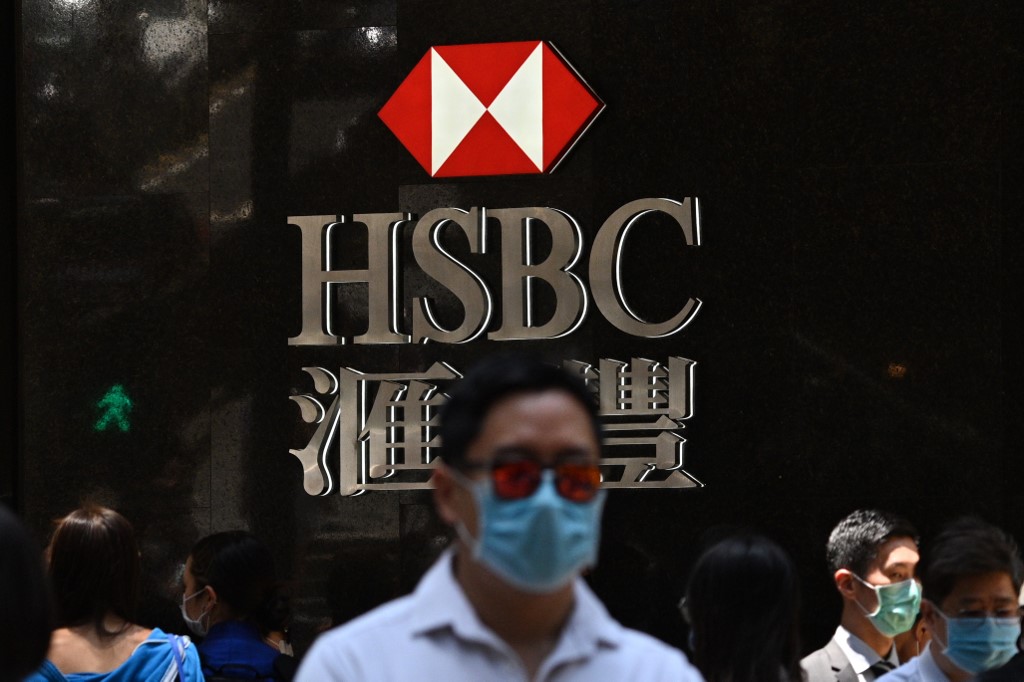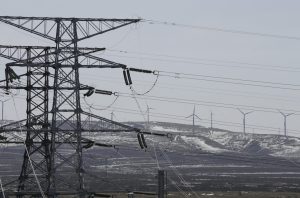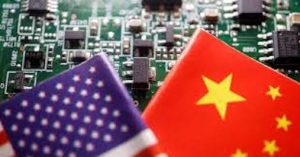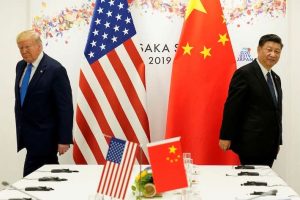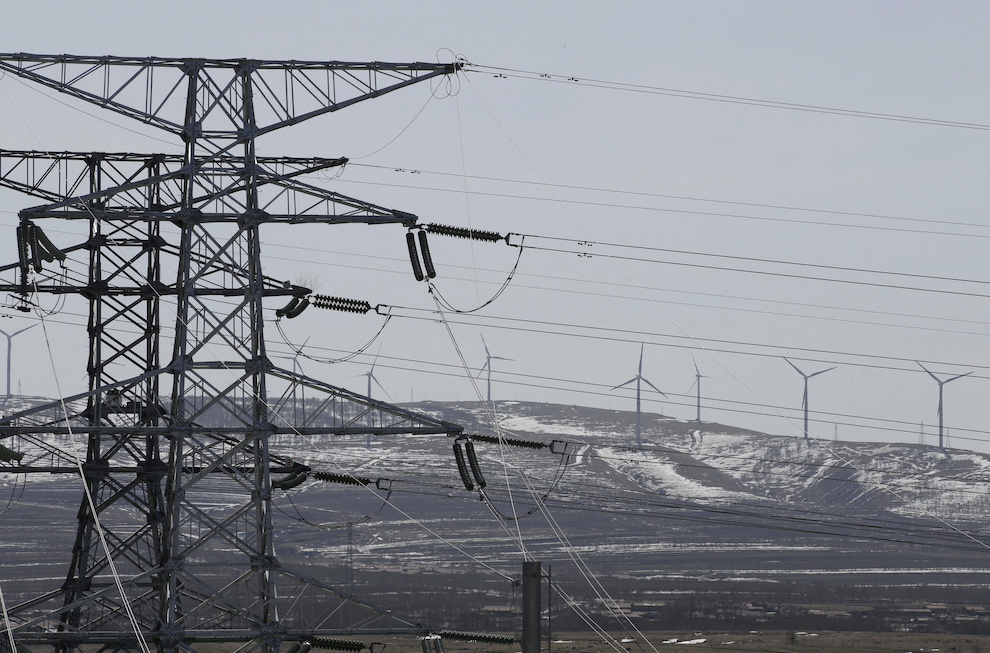(ATF) Against the loud background noise of geopolitics, reason will prevail as big lenders set sights on China
On the subject of the Hong Kong Security Law imposed by China in June to much noise from within the city-state and without, in the United States and United Kingdom, I have no intention here of entering into a dialectic on the subject of prescriptive geopolitical ethics as it might apply to corporate behaviour.
Large multilateral entities such as HSBC, Standard Chartered and Jardine Matheson, which were established in Hong Kong in the 19th century to capture the lucrative trading dynamic between the East and the West – principally Great Britain at the apex of its empire – have found themselves in the crosshairs of the ethics debate for voicing support for that law.
In this case I would prefer to focus on rational self-interest in the context of long-term business strategy for those entities and systemic financial risk for the countries that host them.
HSBC’s long-term strategy, unveiled in February under the auspices of CEO John Flint and reiterated by his successor Noel Flynn, who formally replaced him a month later after assuming the role on an interim basis late last year, is to focus more of its business on Greater China.
The region last year accounted for 40% of revenue and, more tellingly, together with its Asian franchise allowed the bank to book a profit – 85% of which was derived from the region – after sustaining losses in the UK, its domicile country. HSBC remains Europe’s largest bank in terms of total assets but the strategic direction of travel is clear and China is the focus.
This strategy, based on the growth dynamic of Greater China, of its GDP, of its capital markets – to which foreign financial entities are beginning to enjoy greater access than ever before – of the asset management proposition of its already colossal domestic savings and rising number of high net-worth individuals, is a clear-edged example of rational self interest.
Feeling the heat
The bank has felt the heat from politicians in the US and UK governments and been accused by US Secretary of State Mike Pompeo of making a “corporate kowtow” to Beijing in its endorsement of the security law. A worst-case scenario has been mooted under which the British lender loses its license to clear dollars under the ire of the US authorities.
That will never happen. Not when the anti-China rhetoric is dialled down lower with a consequent shift in policy in the event of a Joseph Biden victory in the US presidential election next month, but not even if it intensifies should Donald Trump – health permitting – win again.
It would present systemic financial risk – Lehman on steroids if you will, involving a structurally significant universal lender rather than a niche market investment bank – at a point where the US economy is arguably as vulnerable as it has ever been, thanks to the devastating fallout from the Covid-19 pandemic.
The same would be true should the US seek to restrict the supply of dollars available to Chinese banks, a mooted response to the enactment of the Hong Kong security law, and something that Washington enacted in 2017 when it blocked Bank of Dandong from US financial networks due to violations of sanctions against North Korea. That bank was small and structurally insignificant; an onslaught of restrictions to the dollar-clearing systems of the Federal Reserve and Wall Street for Chinese banks would destabilise the Chinese banking system, but with it the international financial system as well.
Self-interest will prevail
Rational self-interest at the nation state level will prevail underneath the political rhetoric with the reality ensconced in the anodyne fabric of regulation and legal process. Even against the shrill dronings of President Trump, the US Treasury removed China from its list of currency manipulators in January as bilateral trade talks were in full swing.
In the multinational banking arena a dose of rational self-interest was on stark display in June when Standard Chartered, another legacy of Britain’s colonial adventurism in Hong Kong and, like its note-issuing peer, domiciled in London, said just a few days after HSBC endorsed the national security law that the measures will “help maintain the long-term economic and social stability” of the territory.
Just a month later StanChart announced plans to add 1,600 staff over the next three years in southern China, having invested US$40 million in the Standard Chartered Greater Bay Area in Guangzhou as China aims to establish a rival to Silicon Valley, involving an ambitious plan to enable cross-border transactions and investment between Hong Kong, Macau and metropolises in southern China.
Some 68% of StanChart’s revenues were derived from Asia last year, of which around 40% came from its business in China and North Asia. The region is intensely interconnected with China’s economy at its core – and the bank’s CEO Bill Winters has been explicit on the subject of China’s role in its long-term growth strategy. “It was with complete confidence and conviction after our performance in the last two or three years that we were able to identify China as the center of our group’s strategy for the years to come,” he said last year.
Both HSBC and StanChart have been active in lending to Belt & Road projects, a project with unstoppable forward momentum despite noise around the country’s “debt diplomacy” expansionism.
Green bond markets
And as China opens up its huge domestic bond markets to foreign participation by easing investment quotas and allowing for overseas investment banks to lead underwrite deals a potentially huge wallet is up for grabs, particularly in the country’s ballooning green bond markets, where a new alignment with international norms threatens to bring a cascade of foreign money into the market.
HSBC’s and Standard Chartered’s rational self-interest strategies may appear to play into the dialogue of American and British “declinism”, both from the point of view of disengagement with multilateral organisations and groupings – such as Nato and the European Union – and amid the ongoing economic decimations of Covid, which China appears to have been relatively insulated to in economic terms versus its Western peers.
Much like prescriptive geopolitical ethics that’s a subject for debate another time. But as universal lenders such as HSBC and StanChart aim to boost returns on equity – the former has a target of increasing return on net tangible equity from the 8.4% mark last year into the 10%-12% range – rational self-interest determines that if they are to follow the money they have to go to where it is. That place is China and will remain so against the rhetorical background noise.
‘Weeks when decades happen’
“There are decades where nothing happens and there are weeks where decades happen,” said Vladimir Lenin. That might seem to be the case with the rapid-fire developments that have occurred during the coronavirus onslaught.
These include shifts in the global zeitgeist exemplified by the intervention of governments in traditionally laissez-faire economies in a sudden rewriting of the relationship between state, society and commerce and phenomena such as the rise of the Black Lives Matter movement, accompanied by widespread civil unrest.
Anti-China sentiment has grown abruptly thanks to the pandemic as well as the passage of the Hong Kong Security law and its implications for freedom of expression within the former British colony.
For institutions such as HSBC and Standard Chartered, which face pressure from the political noise within the US and UK, but are bound by commercial expedient – even within the context of a shift on the corporate landscape towards environmental, social and governance (ESG) concerns – I suspect the only option is ride out the noise and play the long game.
Some bankers have suggested that against this backdrop it’s unlikely HSBC and Standard Chartered will continue to be listed in London in five years time as domestic political pressure builds. They will – with a larger percentage of consolidated revenue and profit derived from Greater China.
Rational self-interest on all sides determines it.
ALSO SEE: ESG revolution goes from quiet to loud – VERY LOUD
# Jonathan Rogers is founder and CEO of Singapore-based financial public relations company Ostinato Associates. He worked as an investment banker specialising in fixed income and structured products for Nomura and First National Bank of Chicago in London before moving into financial journalism as debt capital markets editor of International Financing Review. He is the author of Opportunities in the Asian Bond Markets and holds a first-class honours degree in politics, philosophy and economics from the University of Oxford.




